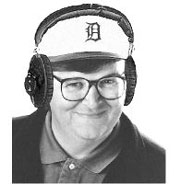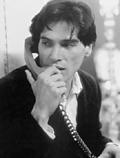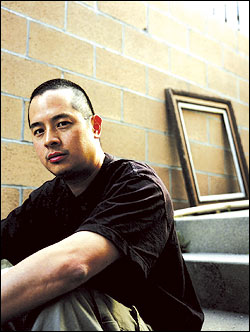AS A RESULT of the amazing response PBS has received for Ken Burns’ 10-part, 17.75-hour epic, Jazz, the network proudly announced that the critically drubbed series is merely the beginning of what is sure to be a lucrative music-related franchise. Over the next year, the struggling PBS will capitalize on its Jazz ratings and publicity windfall by assigning several of the documentary world’s biggest names to chronicle the musical idiom of their choice. True, like Burns (whose focus on Duke Ellington and Louis Armstrong even past their prime is almost monomaniacal), these directors are not without their agendas. But these films will surely be the definitive records of their respective musical genres:
Wim Wenders’ Cuba: A Musical History. While Ken Burns squeezed the last four decades of jazz history into a single cursory two-hour episode, Wim Wenders takes an opposite tack in this marathon saga. The first installment of his 10-volume Cuba carries us from the late 1800s all the way up to the mid-1990s, when Ry Cooder began preparations for his landmark Buena Vista Social Club project. The rest of the series consists mostly of outtakes from Wenders’ acclaimed 1999 movie of the same title. Sure to incite comment are episodes four, five, and six, all of which consist entirely of Cooder and his son, Joachim, riding around Havana on a motorcycle in slow motion, accompanied by well-selected Cuban oldies. Sponsored by General Foods International Coffees.
Michael Moore’s Techno. Born in Detroit during the aftermath of the collapse of the auto industry, techno has grown into the internationally renowned sound of jet-setting youth. But Roger and Me auteur Moore knows that the music is valid only when directly related to the Motor City’s labor and economic woes, so he ignores techno innovations by producers from Holland, Brooklyn, and Berlin, focusing instead on the parallels between run-down GM plants and the plangent sounds of Michigan natives Derrick May, Jeff Mills, and Juan Atkins. Sponsored by Ford.
Barbara Kopple’s Folk. The Oscar-winning director of the 1990 Hormel meatpacking plant strike doc American Dream tackles the thorny history of the people’s music. But not, it must be noted, the kind of thorns that grow on lovers’ graves in traditional English ballads; Kopple’s emphasis is almost exclusively on Broadside-style labor paeans and hallowed songs of social protest. Be sure to catch episode seven, which features exciting footage of Pete Seeger cutting the power during Bob Dylan’s sacrilegious electric performance at the 1965 Newport Folk Festival. Sponsored by your local AFL-CIO.








